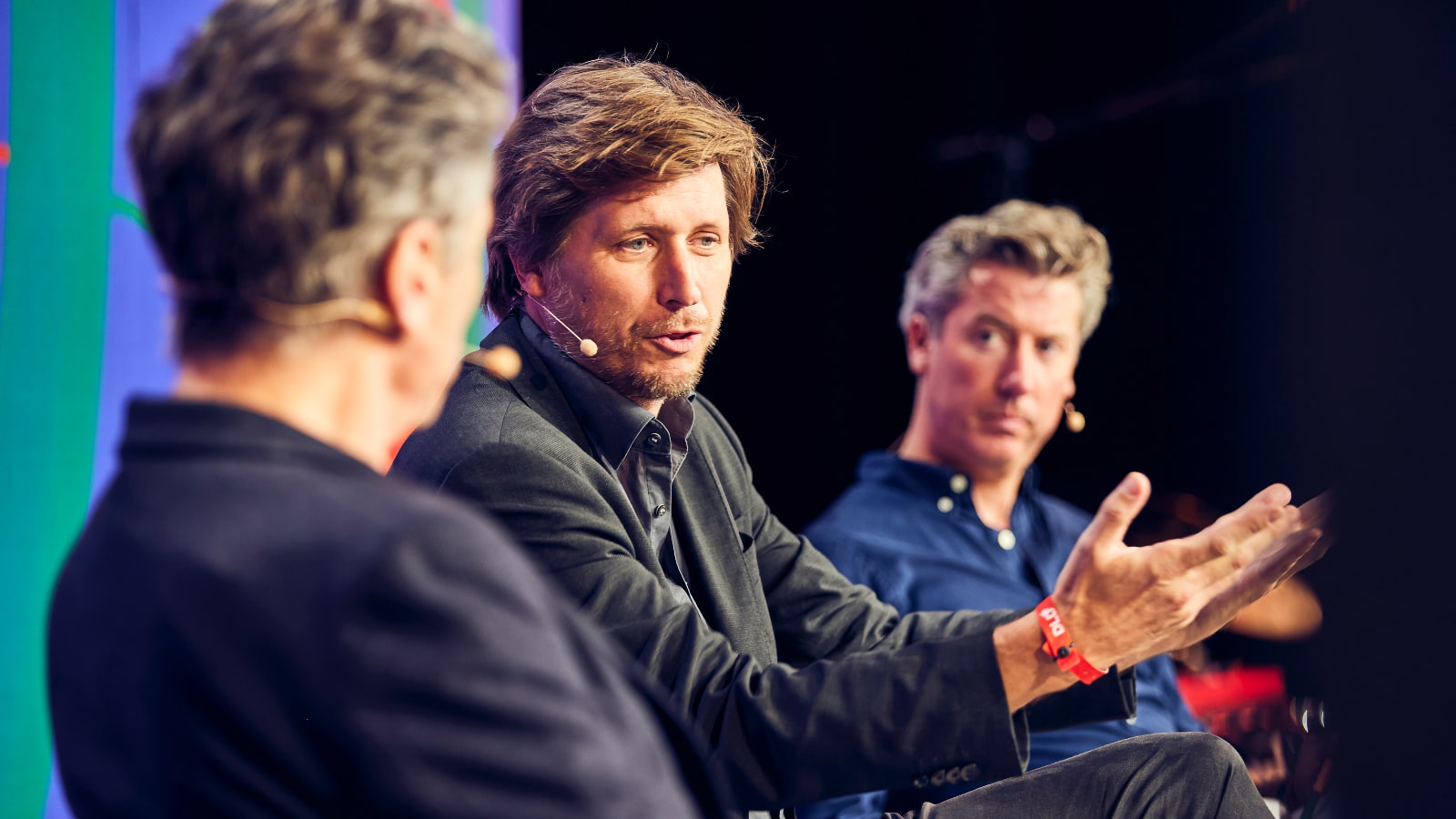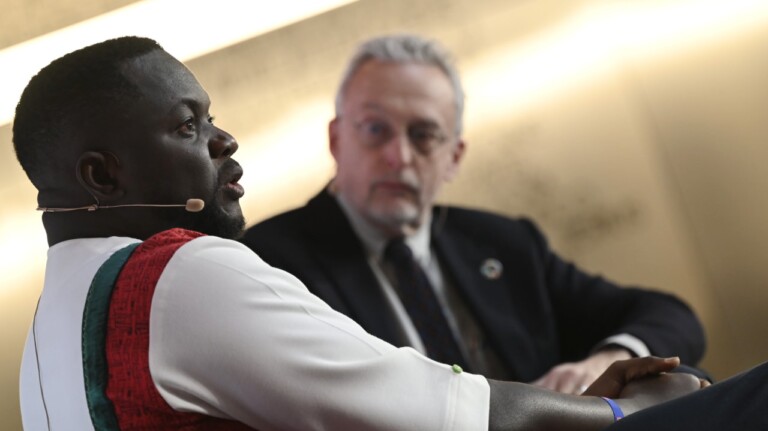What impact does artificial intelligence have on the economy? On international relations? On security? Top economist Moritz Schularick (Kiel Institute for the World Economy) and Benedikt Franke (Munich Security Conference) share expert insights in conversation with bestselling author Andrew Keen.
“Are we at a Gutenberg moment in world history when it comes to AI?”, Keen wants to know. “I think so”, Schularick replies. “I think it’s comparable to the invention of book printing and probably beyond – in the sense that there is an enormous opportunity to share knowledge, to create new knowledge, to generate new ideas.”
Controlling AI, however, could become an existential challenge, Franke warns.
“We’re facing a technology we don’t fully understand. We feel there are enormous benefits to be had. But there also potentially lethal risks… Pandora’s box is open.”
In reaping the benefits of AI it will be crucial to “manage the process of technology adoption very well”, Schularick says. “It can disrupt societies, it can lead to large inequalities. It can lead to resistance.”
The backlash against globalization should serve as a warning in this respect, the economist argues.
“We need to do something to distribute the gains fairly. In the interest of keeping societies open and allowing this wealth generation to go on.”





